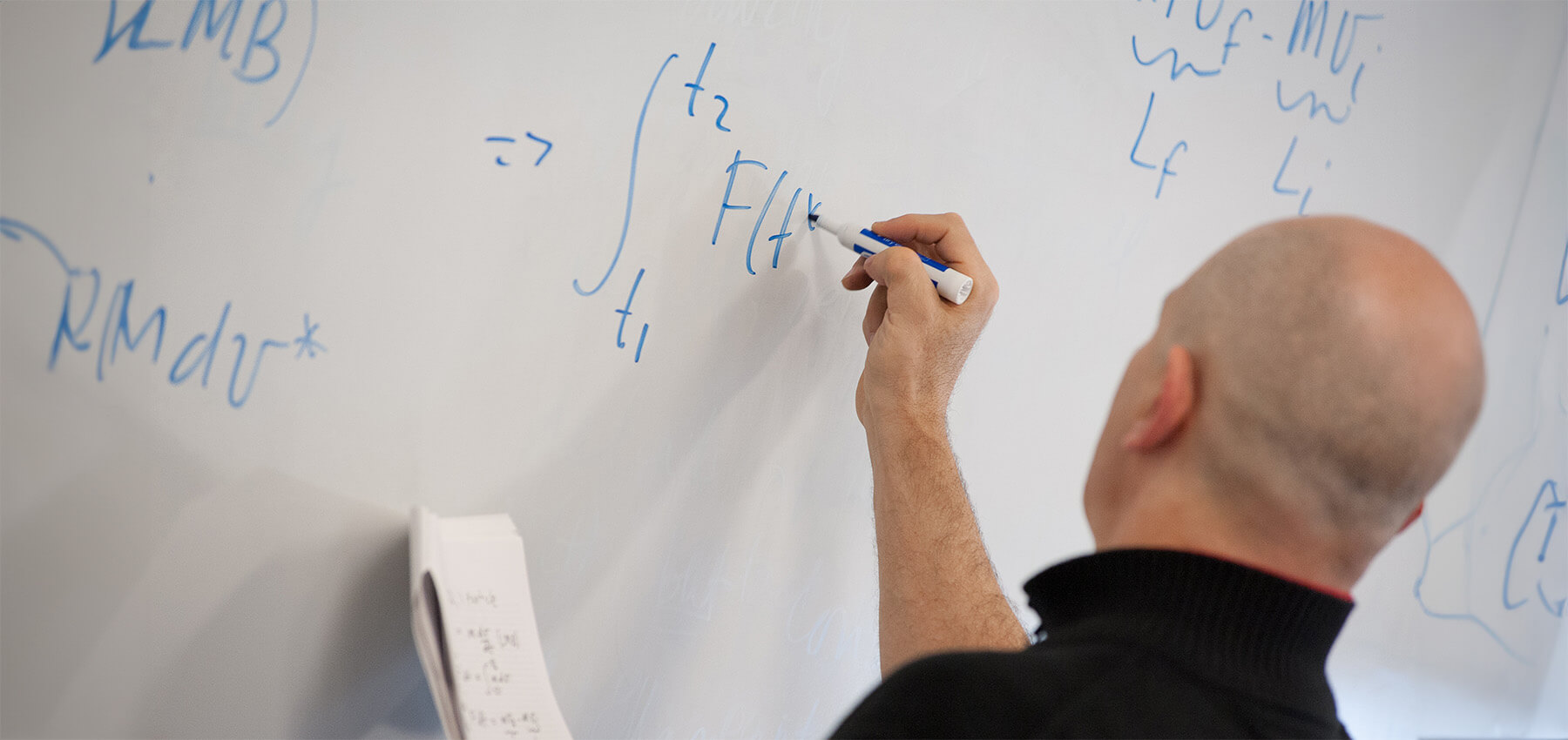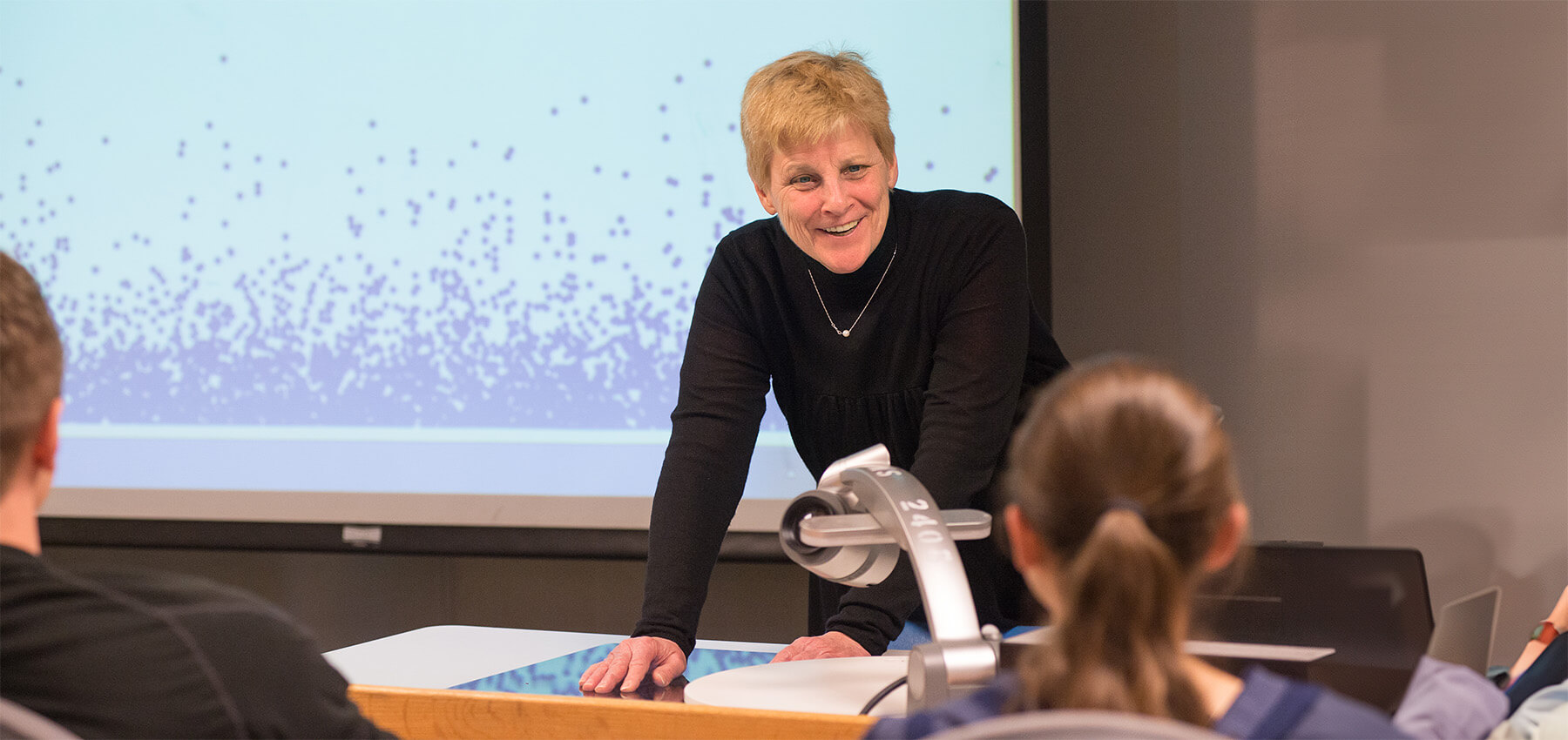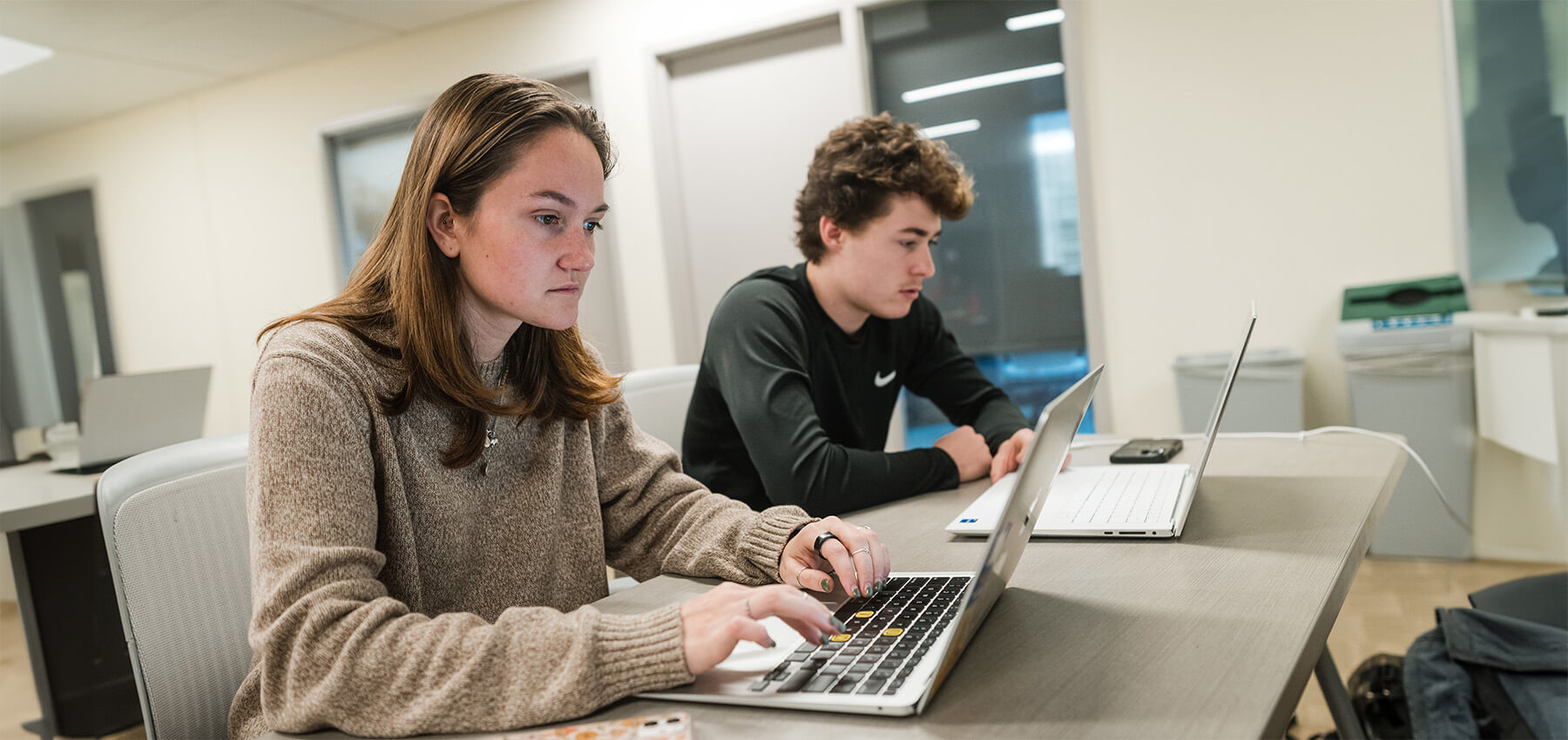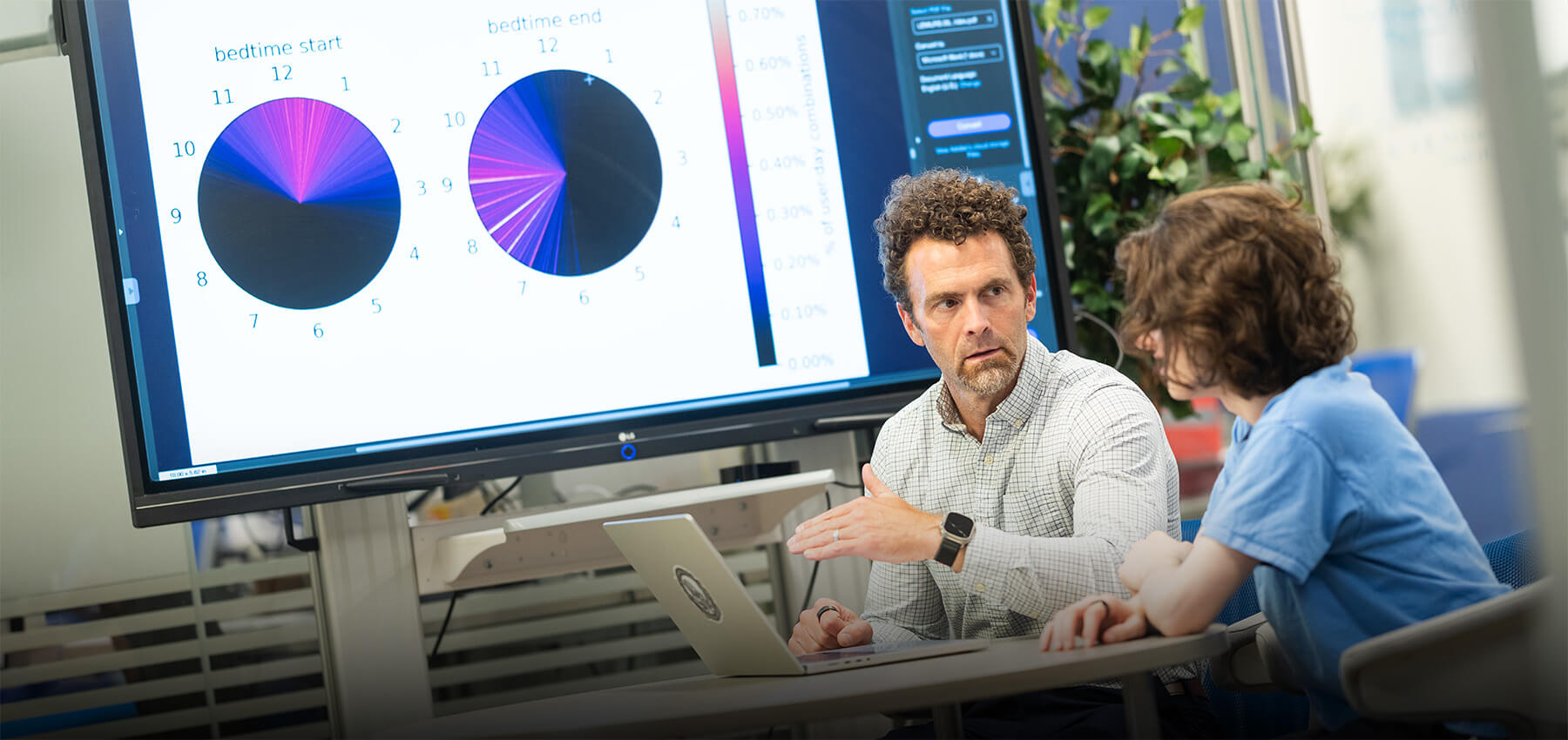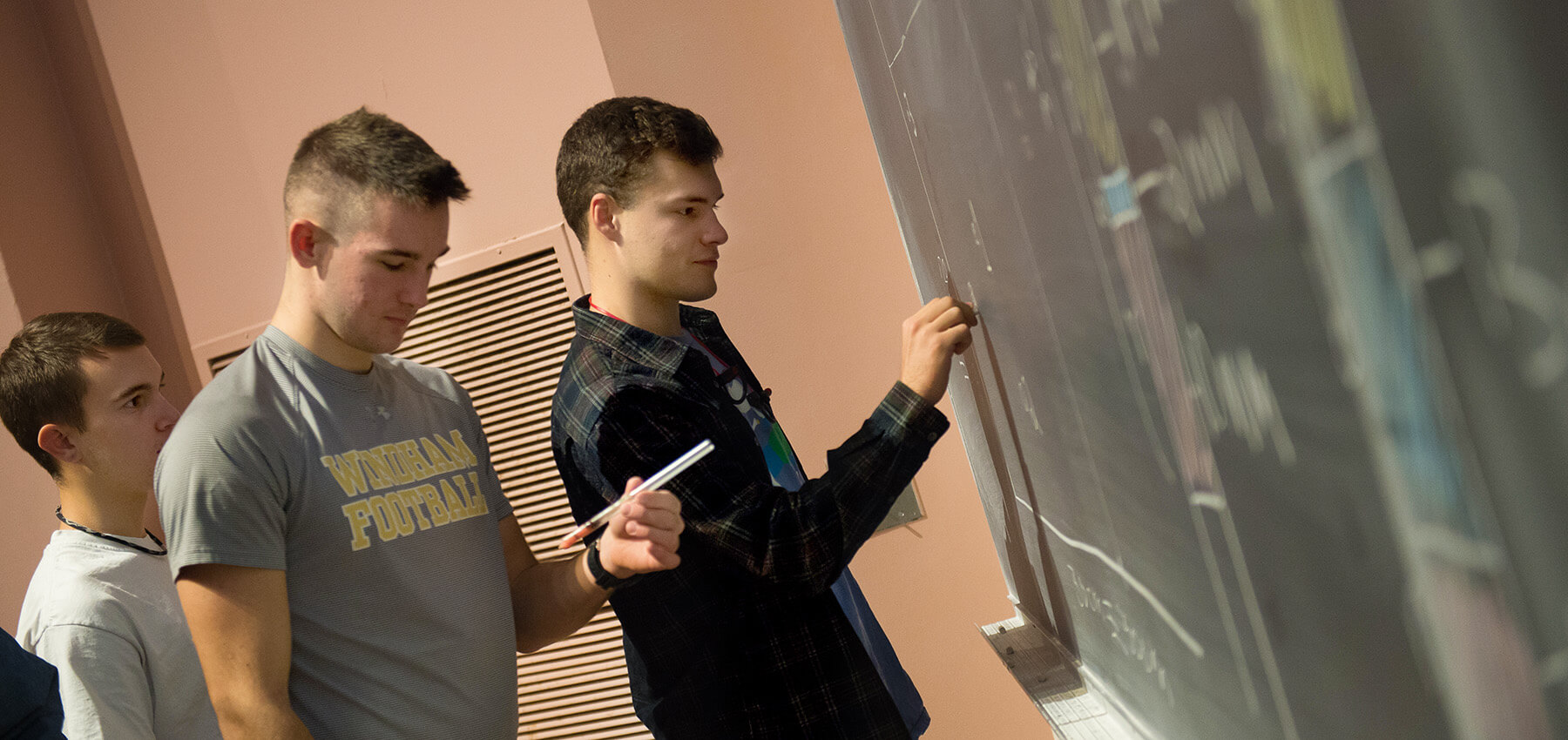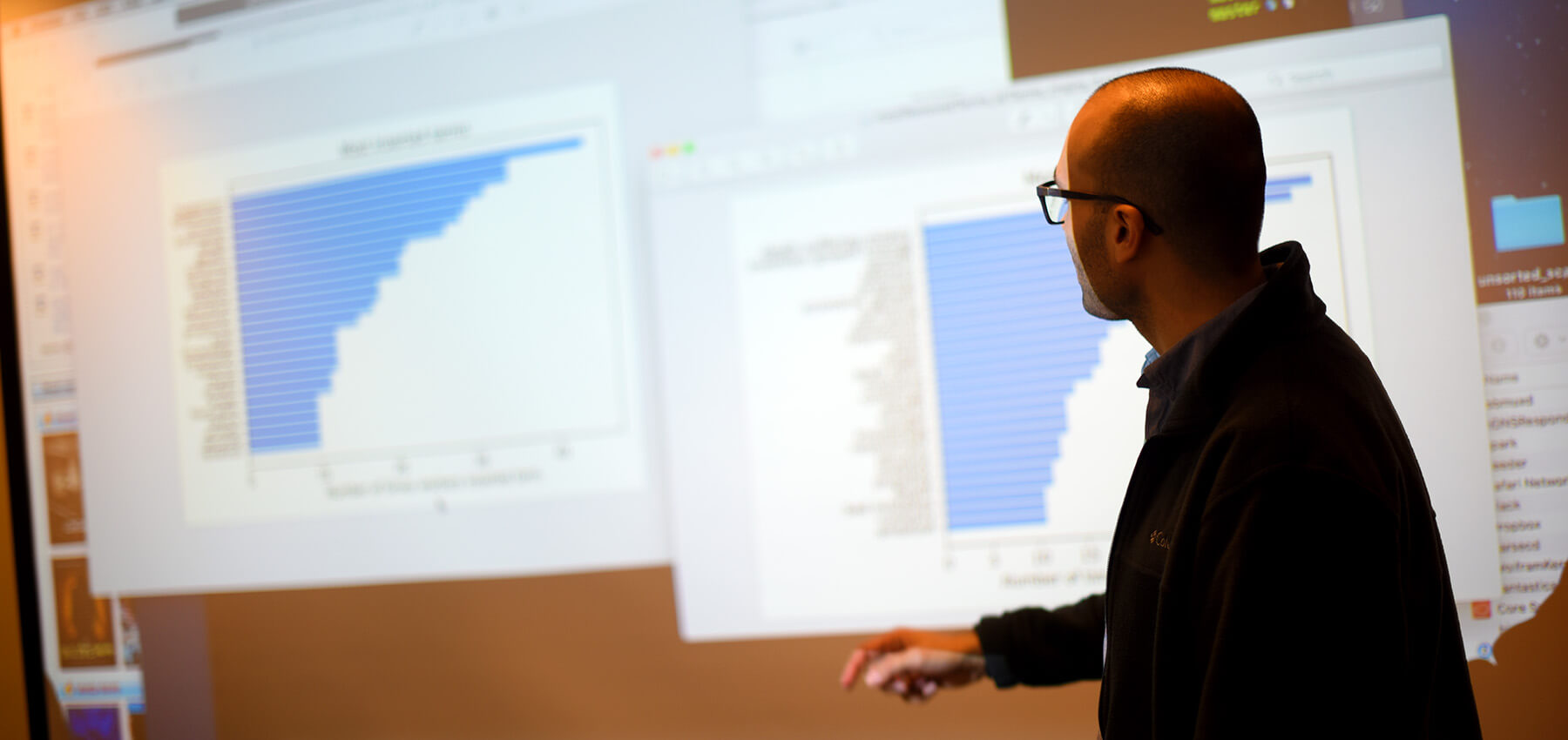As a course of study, mathematics offers a doorway to many exciting fields. While students of mathematics and statistics pursue their talent for finding innovative solutions to complex problems, they often acquire expertise in other fields, such as physics, chemistry, biology, medicine, engineering, and computer science.
Statistics is an information science as well as a mathematical science. Over the past century, the increase in human understanding of the natural world has accelerated tremendously due to the invaluable contributions made by empirical statistical methods. Examples of settings where statisticians play key roles are quality control and reliability within business, industry and healthcare; sample survey work, opinion polls and marketing research; and actuarial science, among many others.
Handbook for Majors and Minors (PDF)
Undergraduate Experience in Mathematics, Statistics, and Data Science (PDF)
Undergraduate Degrees
Undergraduate Learning Outcomes
Major in Mathematics, B.S. in Mathematical Sciences
The Mathematics program is committed to preparing our majors for success in the workplace and in graduate studies with a focus on achieving these learning outcomes:
- Writing: Graduates should be able to write clearly and precisely about quantitative topics.
- Computing: Graduates should be able to perform college-level mathematical computations on a computer.
- Construction: Graduates should be able to construct a logically rigorous proof as well as to recognize flaws in a poorly constructed proof.
- Concepts: Students graduating with a B.S. in Mathematics should also demonstrate an understanding of the core concepts from analysis and abstract algebra. (Specifically, students should demonstrate an understanding of continuity, convergence, metrics and limits from analysis as well as the basic structure of groups, rings and fields from algebra.)
Major in Statistics, B.S. in Mathematical Sciences
The Statistics program is committed to preparing our majors for success in the workplace and in graduate studies with a focus on achieving these learning outcomes:
- Graduates should be able to critically evaluate the strengths and weaknesses of study designs and can select a study design that is appropriate for addressing a specific research question.
- Graduates should be able to use statistical reasoning, formulate a problem in statistical terms, perform exploratory analysis of data by graphical and other means, and carry out a variety of formal inference procedures.
- Graduates should be able to describe important theoretical results and understand how they can be applied to answer statistical questions.
- Graduates should have familiarity with a standard statistical software packages and encourage study of data management and algorithmic problem solving.
- Graduates should have strong communication skills which are necessary to effectively collaborate as part of interdisciplinary teams including the ability to interpret and communicate the results of a statistical analysis through oral and written reports.
Mathematics Curricular Themes
Mathematics and statistics permeate modern life. The study of these subjects leads to the acquisition of new knowledge, new skills and a new language for communication. Below we outline the general curricular themes we see as common to all of our programs. Precise learning outcomes that are consistent with these themes and that are feasible to evaluate have been incorporated into our departmental learning outcomes.
- Universality: We hope to impart an appreciation for the power, beauty and breadth of mathematics and statistics. On one extreme, theoretical mathematics and statistics are beautiful subjects that require strong skills in critical and abstract thinking. The simple abstract concepts that arise in these subjects, such as a vector or a rate of change, have been applied to the immeasurable benefit of society in all areas of human endeavors. These applied areas serve to motivate and inspire new theoretical research.
- Communication: Effective communication is an essential skill in all parts of life, from the person to the professional and from the humanities to the sciences. Practicing precision and clarity in effective mathematical communication, both verbally and visually, is excellent training for oral and written communications in all fields.
- Problem solving: Solving a problem, whether in mathematics and statistics or elsewhere, requires a clear delineation of the problem, requisite knowledge, relevant skills and creativity.
- Computational skills: Computing, grounded in paper-and-pencil work, runs the gamut from order-of-magnitude estimates in one’s head to the ability to use a computer to provide insight into a problem. These skills are especially important in those disciplines more directed toward modeling.
Prospective Student Resources
Why Mathematics and Statistics?
Our students and our faculty understand the unique challenges and satisfactions that the careful study of mathematics and statistics offers.
Mathematical ideas and results not only represent some of the highest accomplishments of mankind, but also are an indispensable tool in an ever-increasing array of disciplines. In this sense mathematics has a dual nature: it is both an independent field of study valued for precision of thought and intrinsic beauty, and it is a rich source of techniques and methods for the world of applications.
Here at UVM, we take great pride in making sure that both of these aspects of mathematics and statistics are well represented in our research and our curriculum.
Research
Our research strengths in applied and computational mathematics, analysis, algebra and number theory, and combinatorics and graph theory, and applied statistics and biostatistics are recognized throughout the world. Our faculty members have given lectures on 5 continents and in over 40 foreign countries. Recent research contributions include fast algorithms for modeling blood flow through the body and for modeling the size and shape of the polar ice caps, work on fundamental properties signal processing and fiber optic communications, the study of the spread of viruses in a computer network, and the design and analysis of methods to improve care of premature infants.
Providing research of exceptional quality is only one of our responsibilities in a land-grant university. We also have large and varied instructional responsibilities. We have a curriculum that is quite flexible and is well suited to the many possible uses of a mathematics or statistics degree. The same faculty research skills that have resulted in over 500 publications in refereed journals have also resulted in special projects in undergraduate and graduate courses.
Faculty
Our faculty also make their skills available outside the University in many ways. Faculty in the department are actively involved in outreach activities such as The Vermont Mathematics Initiative (VMI), a nationally recognized effort to enhance the mathematics performance of K-12 students by improving mathematics instruction throughout the state. Members of the department are involved in other activities such as regional, state and national mathematics competitions; sitting on national funding agencies funding panels; and editing and refereeing for professional journals. Our annual Math Day, held each May, brings together the winners of our annual High School Prize Exam, which has been run continuously out of our department since 1958.
Graduate Program
Our graduate program is very strong and has at any one time 15 students supported on GTAs and about 3-5 students supported by fellowships and grants. Our graduate students work closely with the faculty on sponsored research and receive excellent training to prepare them for their careers in academia, industry, government agencies among others. The department grants the following graduate degrees: M.S., M.S.T., and Ph.D.
